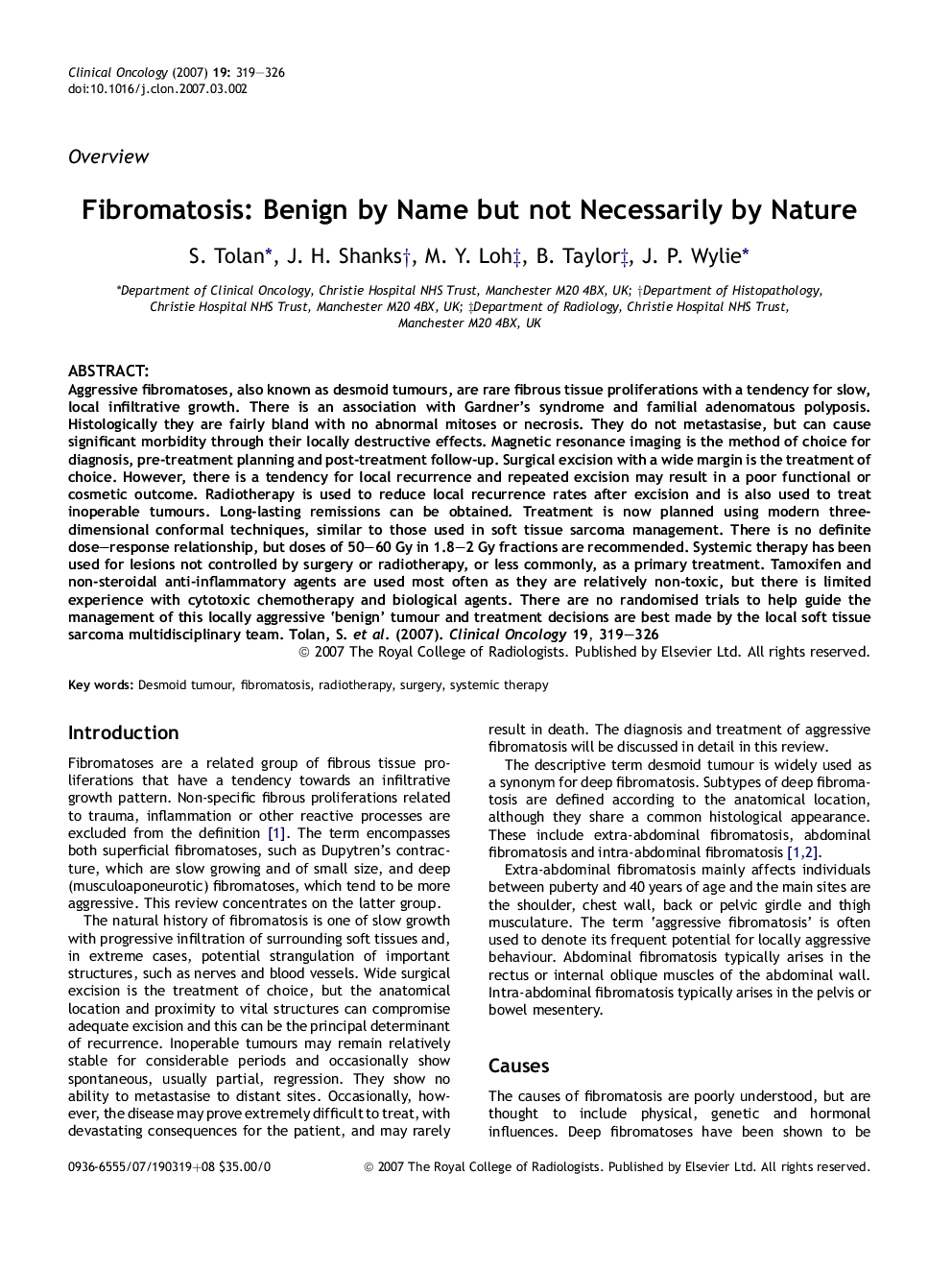| Article ID | Journal | Published Year | Pages | File Type |
|---|---|---|---|---|
| 5699785 | Clinical Oncology | 2007 | 8 Pages |
Abstract
Aggressive fibromatoses, also known as desmoid tumours, are rare fibrous tissue proliferations with a tendency for slow, local infiltrative growth. There is an association with Gardner's syndrome and familial adenomatous polyposis. Histologically they are fairly bland with no abnormal mitoses or necrosis. They do not metastasise, but can cause significant morbidity through their locally destructive effects. Magnetic resonance imaging is the method of choice for diagnosis, pre-treatment planning and post-treatment follow-up. Surgical excision with a wide margin is the treatment of choice. However, there is a tendency for local recurrence and repeated excision may result in a poor functional or cosmetic outcome. Radiotherapy is used to reduce local recurrence rates after excision and is also used to treat inoperable tumours. Long-lasting remissions can be obtained. Treatment is now planned using modern three-dimensional conformal techniques, similar to those used in soft tissue sarcoma management. There is no definite dose-response relationship, but doses of 50-60Â Gy in 1.8-2Â Gy fractions are recommended. Systemic therapy has been used for lesions not controlled by surgery or radiotherapy, or less commonly, as a primary treatment. Tamoxifen and non-steroidal anti-inflammatory agents are used most often as they are relatively non-toxic, but there is limited experience with cytotoxic chemotherapy and biological agents. There are no randomised trials to help guide the management of this locally aggressive 'benign' tumour and treatment decisions are best made by the local soft tissue sarcoma multidisciplinary team.
Related Topics
Health Sciences
Medicine and Dentistry
Oncology
Authors
S. Tolan, J.H. Shanks, M.Y. Loh, B. Taylor, J.P. Wylie,
